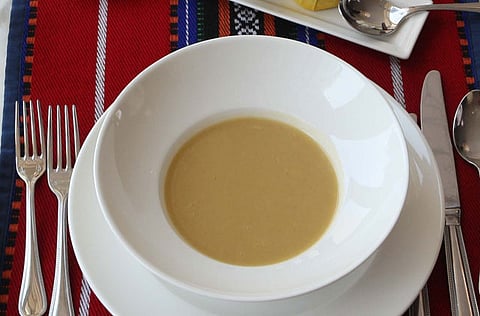Iftar must-haves: sweet and savoury
People from various nationalities share their favourite Ramadan food

Iftar is about foods that have tradition, memories and good health, say the six women that The weekend tabloid! spoke to. They talked about what they considered the absolute must-haves in their homes.
Farhana Zaman, a Bangladeshi national, said: “I make fresh dahi badeh [fried lentil dumplings soaked in sweetened yoghurt] every day for iftar in Ramadan.
“Yoghurt is a major part of the dish and it is good for health. When the chaat masala [a mix of tangy spices] and black pepper are added to it, the mix of sweet and spicy tastes make it the best dish for iftar.”
At times, the 25-year-old also makes vegetable fritters or pakoras for iftar, a dish common in the subcontinent.
Syeda Maheen Jafri, a Pakistani national, also likes to make fritters. She said: “My family and I eat pakoras for iftar, daily. Sometimes, it is cheese pakoras and at other times, it is mixed vegetables or green chilli pakoras.
“Along with pakoras, we also make dahi phulkia [dumplings in yoghurt], fruit chaat [fresh fruit with spices] and choley, or spiced chickpea curry. All of these food items are a must for iftar every day.”
Moving away from fried dishes, it is important for Lubna Tanveer, an Indian national, to have soup every day. A 31-year-old homemaker, she said: “For iftar, I make fresh chicken or oat soup every day for myself and my husband. Soup is a healthy dish because it fills the stomach.”
Nisreen Bashnak, 28, a Lebanese national, gives precedence to salad. “I make fattoush every day for iftar,” she said. The preparation is made from lettuce, vegetables and toasted pieces of pita bread, tossed in a sweet and tangy dressing.
Bashnak emphasises the health value of the dish. She said: “Since it includes vegetables and herbs, it is a healthy dish for iftar.” Sometimes, she also cooks vegetables or chicken and rice for iftar.
Aisha Abdul Noor Al Janahi, a 30-year-old Emirati, has two dishes that are a must for iftar. One of them is harees.
Harees is prepared by cooking boiled, cracked, or coarsely ground wheat and meat or chicken. Its consistency is usually like that of porridge. Aisha said: “I make this food because my family and I need a chicken or meat dish daily for iftar.”
In addition, she also enjoys making arseeyah, a rice and chicken dish.
While many focused on the savoury, for Yemeni national Asma Abdul Rahman Ali Bahassan, luqaimat is a must for iftar. She said: “This is a sweet dumpling, which is fried and soaked in date honey or sugar syrup.”
The 31-year-old added that she tries to bring sweetness into her family’s day by making fresh dumplings daily for iftar.
The writer is an intern at Gulf News

